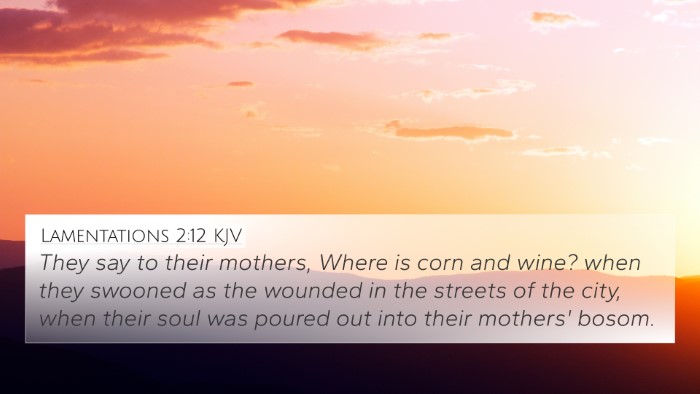Bible Verse Meaning: Luke 10:30
Luke 10:30 states:
"And Jesus answering said, A certain man went down from Jerusalem to Jericho, and fell among thieves, which stripped him of his raiment, and wounded him, and departed, leaving him half dead."
This verse introduces the parable of the Good Samaritan, illustrating key themes of compassion, mercy, and neighborly love. Understanding this verse requires a detailed examination through biblical interpretations and cross-references, revealing deeper insights about human nature and divine expectations.
Summary of Insights from Commentaries
-
Matthew Henry:
Henry comments on the state of the man who was attacked, emphasizing that he was traveling from Jerusalem to Jericho, indicative of a decline in spiritual state. The journey represents the Christian life, where believers may face dangers and temptations.
-
Albert Barnes:
Barnes highlights the significance of the "thieves," representing sin and the danger of falling into spiritual peril. The man's plight serves as a mirror reflecting the vulnerability of humanity and the necessity for divine aid.
-
Adam Clarke:
Clarke provides historical context regarding the Jericho Road, known for its treacherousness, which enhances the parable's moral implications. The half-dead man's condition symbolizes the state of those who are morally wounded and need salvation.
Thematic Connections to Other Bible Verses
Luke 10:30 serves as a pivotal point for understanding various themes in the Bible, particularly those concerning love, mercy, and the nature of God. Below are significant cross-references that relate closely to this verse:
- Matthew 22:39: "Thou shalt love thy neighbour as thyself." This verse directly connects to the parable's message about loving and helping others.
- Galatians 6:2: "Bear ye one another's burdens, and so fulfill the law of Christ." The act of assisting the wounded man reflects the call to support one another.
- James 2:14-17: Discusses the importance of faith paired with works, much like the Good Samaritan's actions reflect true faith through deeds.
- Proverbs 14:31: "He that oppresseth the poor reproacheth his Maker." This biblical reference underscores the importance of showing mercy and kindness.
- 1 John 3:17: "But whoso hath this world’s good, and seeth his brother have need, and shutteth up his bowels of compassion from him, how dwelleth the love of God in him?"
- Luke 6:31: "And as ye would that men should do to you, do ye also to them likewise." This reinforces the principle of reciprocity in kindness.
- Matthew 25:35-40: The account of aiding those in need being akin to serving Christ Himself, illustrating the divine expectation of mercy.
Understanding Through Cross-Referencing
Engaging in Bible cross-referencing is essential for fleshing out the meaning behind Luke 10:30. Here are a few methods and tools that can aid in this type of study:
- Bible Concordance: An indispensable tool for finding specific verses and their connections.
- Bible Cross-Reference Guide: Guides help track similar themes and ideas across different books of the Bible.
- Bible Chain References: A method that links verses in a concise path to explore thematic continuities.
- Cross-Referencing Study Methods: Techniques such as thematic studies or verse comparisons that link Old and New Testament teachings.
- Inter-Biblical Dialogue: The exploration of how different Biblical texts interact with one another, reinforcing or contrasting messages.
Conclusion
Through detailed examination and cross-referencing, Luke 10:30 invites readers to reflect on their own compassion and the call to act as neighbors to those in need. By exploring its connections to other scriptures, we gain a holistic understanding of Jesus' teachings regarding love and mercy.








